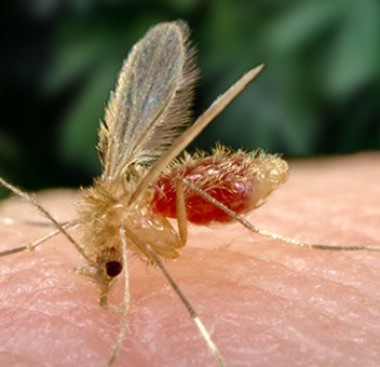PETA TAKES AIM AT MCDONALD’S
By: Staff Date: 01/16/2012 Category: | Animal Rights Extremism |
The Golden Arches are the latest target of People for the Ethical Treatment of Animals. Pursuing a time-tested method of marshalling public opinion against an American corporation, PeTA has engaged in a major campaign to force the fast food company to serve vegetarian meals and change the way its suppliers raise animals.
McDonald's declined to implement the PeTA plan for the company; PeTA broke off talks and started "McCruelty to go," a battle plan of demonstrations, advertisements, and promotions to pressure the company into acceding to six demands centering on chickens, eggs, pigs, and vegetarian burgers. In 1997, a British court found McDonald's responsible for cruelty to animals in the infamous McLibel1 case for buying eggs from chickens raised in battery cages and buying chickens from slaughterhouses with inhumane conditions. A month after the verdict, PeTA contacted McDonald's and asked for a meeting to discuss the company's operations in the US.
In a letter to Mike Quinlan, McDonald's chief executive officer, PeTA's vegetarian campaign coordinator Bruce Friedrich quoted from the British judge's decision and from a report issued by Compassion in World Farming to indict practices allegedly used by suppliers and condoned by McDonald's. McDonald's officials agreed to some meetings with PeTA. The company also hired Temple Grandin, a leading expert on livestock handling systems and livestock welfare, to inspect its supply companies and farms and to offer advice on changes in procedures if necessary.
McDonald's, PeTA, and Grandin held several discussions from December 1998 through June 1999. PeTA asked for materials from McDonald's to prove that the company was telling the truth about planned and implemented improvements, requested a seat on the audit teams that inspect slaughterhouses, strongly suggested that the company schedule unannounced audits to catch suppliers who have substandard operations, and bluntly stated that McDonald's did not care about animal welfare if it did not comply with these demands.
On August 12, PeTA spokesman Steve Gross cut off the talks. "We are finished," Gross wrote in a letter to the company. McDonald's new CEO Jack Greenberg was disappointed. "The very morning after my representative discussed with you the agenda and timing of a meeting with you and me, you chose to publicly impugn our motives and sincerity, proclaiming 'negotiations' were at an end. I am disappointed with your rhetoric because we at McDonald's are sincere in our desire to provide leadership in the area of animal welfare."
McDonald's maintains that it is a leader in animal welfare concerns in the fast food industry. The company funded videos on humane animal handling methods for beef and pork processors that is distributed by the American Meat Institute Foundation. Grandin was a consultant on the project. Released in May, the videos emphasize the need to conduct regular audits of processing plants to make sure animals are handled humanely and to identify and correct problems. The videos are available from WATT Publications, (815) 734-9091. In July, Grandin noted in a report that plant audits she conducted for McDonald's and others in 1999 showed a marked increase in compliance with humane handling standards over plants surveyed for USDA in 1996. Seventy-four percent of audited plants were compliant with the cattle stunning2 standards in 1999, up from 30 percent in 1996, and 78 percent were compliant with standards for vocalization3 this year compared to 38 percent in 1996.
"These summaries clearly show that the industry has improved," Grandin wrote. "Audits conducted by McDonald's Corporation have motivated the beef industry to improve handling and stunning of cattle." Not all plants meet the standards, however, In October, McDonald's suspended purchases from a plant that failed the audit.
Terrorism
On October 16, McDonald's restaurants in four towns on New York's Long Island were vandalized and slogans from the Animal Liberation Front were painted on the walls along with "Animal Rights Now" and "Animals = Humans." Police said that an advance warning of vandalism was sent to a McDonald's regional office but would not elaborate. The attack was the latest in a long string of raids on the restaurants in the US and Europe. Generally, US activists have limited activities to spray painting walls, gluing locks, harassing customers, breaking windows, and trespassing to erect banners and signs that say "McDeath," but in Europe some restaurants have been torched.
PeTA takes a different tack, leaving to others to commit the violence that it does not condemn. Instead, PeTA uses public demonstrations and marketing techniques to vilify a company, a technique honed on campaigns against Procter & Gamble, Gillette, and other corporations.4 PeTA's "Meat stinks" website accuses McDonald's of deliberate cruelty to animals and calls for demonstrations at restaurants all over the country. PeTA offers t-shirts and brochures with anti-McDonald's slogans and closes with "Obviously, we want McDonald's to stop selling meat altogether, but here are the things we suggested they do immediately to reduce suffering for countless animals." The list of six demands follows this statement.
- This was a civil case brought by McDonald's against animal rights activists who distributed leaflets defaming the company. The judge found for McDonald's on most issues but said the company was culpable for the conditions in which the chickens were raised and slaughtered.
- Meat Institute guidelines specify that 95 percent of cattle must be rendered instantly insensible with one shot from a captive bolt gun. All cattle must be completely insensible and unconscious on the bleed rail for the plant to pass the audit.
- Vocalization during handling is a sign of stress. When plants improve handling practices, the number of animals that bellow or moo will decline. AMI guidelines specify that a plant receives an acceptable rating when three percent or fewer animals vocalize during handling and stunning.
About The Author
All Authors Of This Article: | Patti Strand |












